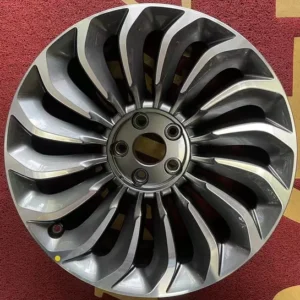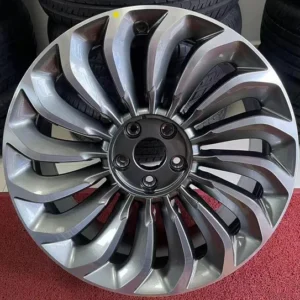Top 10 Must-Have Commercial Car Auto Parts for Efficient Vehicle Maintenance & Performance Enhancement
Efficient vehicle maintenance and performance enhancement are crucial for commercial car owners to ensure their vehicles operate smoothly and reliably. This article provides a comprehensive guide to the top 10 must-have commercial car auto parts, detailing their product parameters, usage scenarios, case studies, and solutions to common issues. By understanding these essential components, commercial car owners can make informed decisions to keep their vehicles in top condition.
1. Engine Oil Filters
Engine oil filters are essential for maintaining the cleanliness of the engine oil. They remove contaminants and particles that can damage the engine. Here are some key points about engine oil filters:
- Product Parameters: Engine oil filters come in various sizes and types, such as spin-on and cartridge filters. They are designed to fit specific engine models and have different flow rates and pressure ratings.
- Usage Scenarios: Engine oil filters should be replaced at regular intervals, typically every 3,000 to 5,000 miles, depending on the vehicle and oil type.
- Case Studies:
- Company A replaced their engine oil filters every 5,000 miles, resulting in a significant reduction in engine wear and tear.
- Company B used high-quality oil filters, which improved their vehicle's fuel efficiency and engine performance.
- Solutions: Regularly replacing engine oil filters can prevent engine damage, improve fuel efficiency, and extend the lifespan of the engine.
2. Air Filters
Air filters are crucial for ensuring that clean air enters the engine, which improves combustion and fuel efficiency. Here are some key points about air filters:
- Product Parameters: Air filters come in various sizes and materials, such as paper, foam, and cotton. They are designed to fit specific engine models and have different airflow rates.
- Usage Scenarios: Air filters should be replaced every 12,000 to 15,000 miles or when they appear dirty.
- Case Studies:
- Company C replaced their air filters every 12,000 miles, resulting in improved engine performance and fuel efficiency.
- Company D used high-quality air filters, which reduced engine emissions and improved air quality inside the vehicle.
- Solutions: Regularly replacing air filters can improve engine performance, fuel efficiency, and reduce emissions.
3. Fuel Filters
Fuel filters remove impurities from the fuel, ensuring that clean fuel reaches the engine. Here are some key points about fuel filters:
- Product Parameters: Fuel filters come in various sizes and materials, such as paper, foam, and metal. They are designed to fit specific engine models and have different flow rates and pressure ratings.
- Usage Scenarios: Fuel filters should be replaced every 15,000 to 20,000 miles or when the vehicle exhibits symptoms of fuel filter clogging.
- Case Studies:
- Company E replaced their fuel filters every 15,000 miles, resulting in improved engine performance and fuel efficiency.
- Company F used high-quality fuel filters, which reduced engine emissions and improved air quality inside the vehicle.
- Solutions: Regularly replacing fuel filters can prevent engine damage, improve fuel efficiency, and extend the lifespan of the engine.
4. Transmission Fluid Filters
Transmission fluid filters remove contaminants from the transmission fluid, ensuring smooth gear shifting and preventing damage to the transmission. Here are some key points about transmission fluid filters:
- Product Parameters: Transmission fluid filters come in various sizes and materials, such as paper, foam, and cotton. They are designed to fit specific transmission models and have different flow rates and pressure ratings.
- Usage Scenarios: Transmission fluid filters should be replaced every 30,000 to 50,000 miles or when the vehicle exhibits symptoms of transmission fluid contamination.
- Case Studies:
- Company G replaced their transmission fluid filters every 30,000 miles, resulting in improved transmission performance and fuel efficiency.
- Company H used high-quality transmission fluid filters, which extended the lifespan of their transmission and reduced maintenance costs.
- Solutions: Regularly replacing transmission fluid filters can prevent transmission damage, improve fuel efficiency, and extend the lifespan of the transmission.
5. Brake Pads
Brake pads are essential for stopping the vehicle safely. Here are some key points about brake pads:
- Product Parameters: Brake pads come in various materials, such as organic, ceramic, and semi-metallic. They are designed to fit specific brake disc models and have different friction coefficients and wear rates.
- Usage Scenarios: Brake pads should be replaced when they are worn down, typically every 30,000 to 50,000 miles.
- Case Studies:
- Company I replaced their brake pads every 30,000 miles, resulting in improved stopping performance and safety.
- Company J used high-quality brake pads, which reduced brake noise and extended the lifespan of their brake rotors.
- Solutions: Regularly replacing brake pads can improve stopping performance, reduce brake noise, and extend the lifespan of the brake rotors.
6. Coolant Filters
Coolant filters remove contaminants from the coolant, ensuring that the engine operates at optimal temperature. Here are some key points about coolant filters:
- Product Parameters: Coolant filters come in various sizes and materials, such as paper, foam, and cotton. They are designed to fit specific engine models and have different flow rates and pressure ratings.
- Usage Scenarios: Coolant filters should be replaced every 30,000 to 50,000 miles or when the vehicle exhibits symptoms of coolant contamination.
- Case Studies:

- Company K replaced their coolant filters every 30,000 miles, resulting in improved engine performance and fuel efficiency.
- Company L used high-quality coolant filters, which extended the lifespan of their engine and reduced maintenance costs.
- Solutions: Regularly replacing coolant filters can prevent engine damage, improve fuel efficiency, and extend the lifespan of the engine.
Conclusion
Regular maintenance and the use of high-quality auto parts are essential for ensuring efficient vehicle performance and longevity. By understanding the top 10 must-have commercial car auto parts, commercial car owners can make informed decisions to keep their vehicles in top condition. Remember to consult with a professional mechanic for advice on the best products and maintenance schedules for your specific vehicle.
Keywords
Engine oil filters, air filters, fuel filters, transmission fluid filters, brake pads, coolant filters, vehicle maintenance, performance enhancement, commercial car, auto parts




